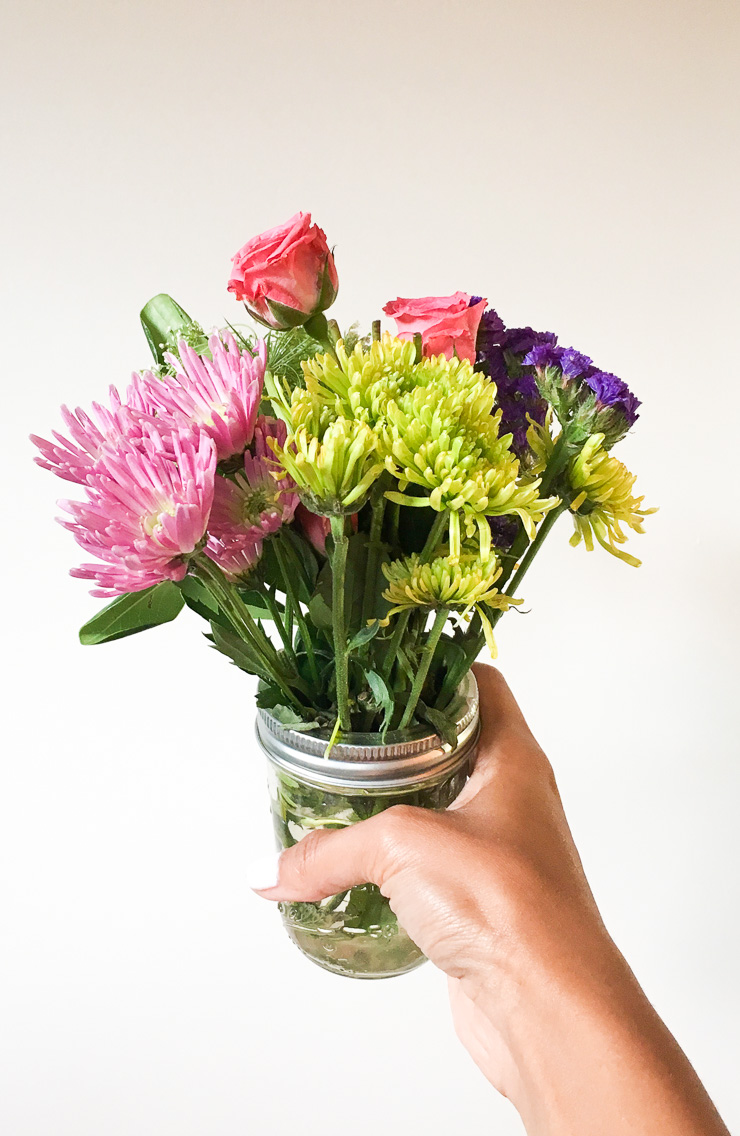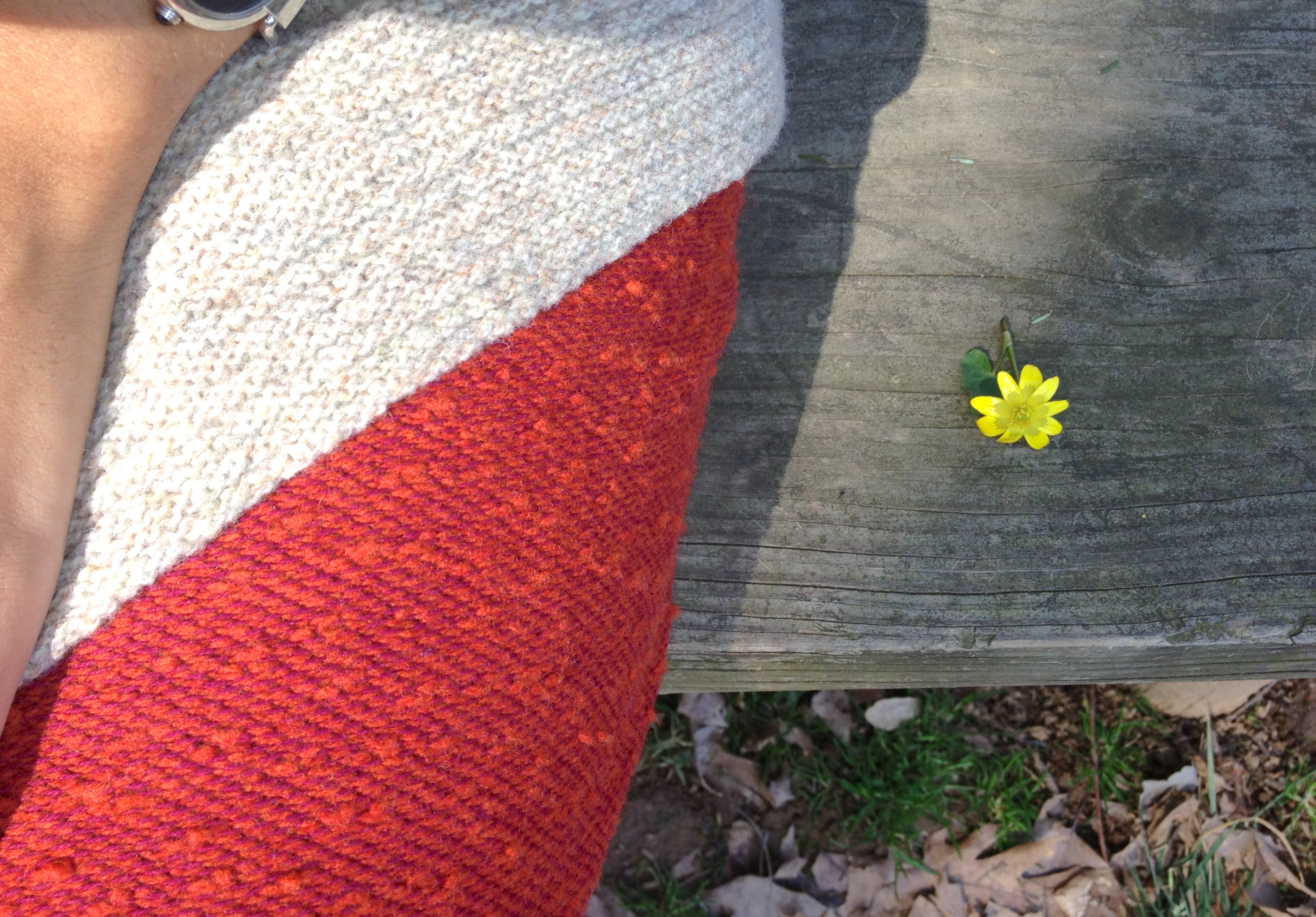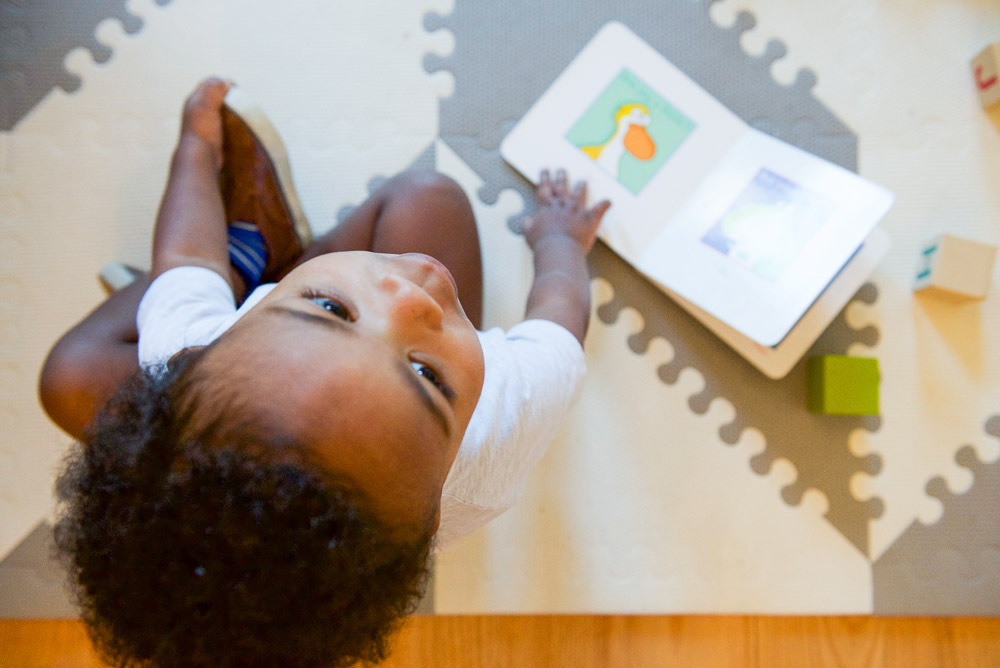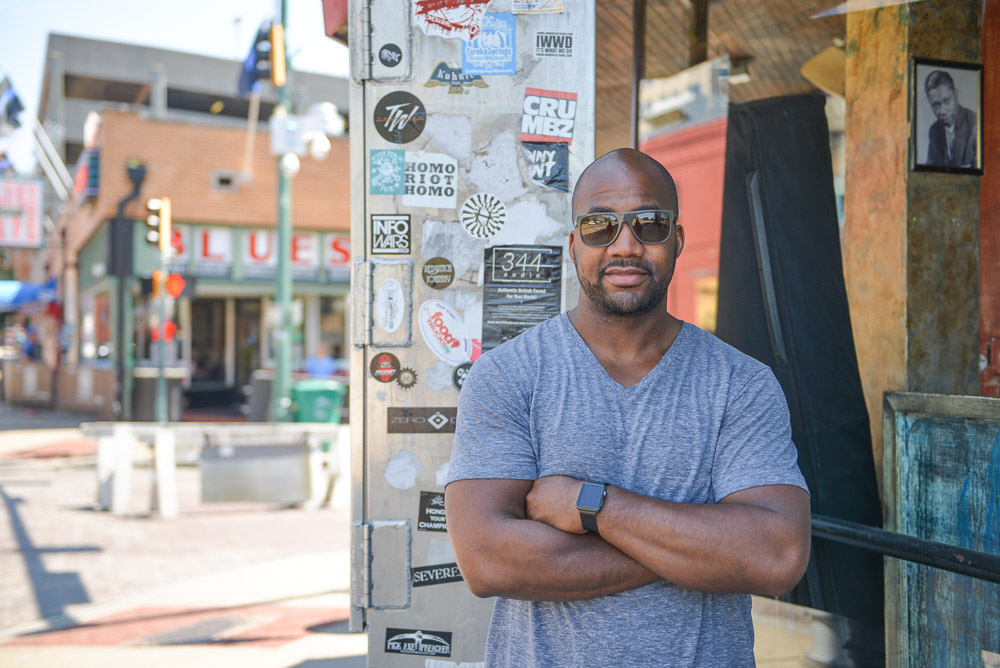Last week marked eight years since my first husband, Jarronn, passed away. Each year, as the date approaches, I do a lot of reflecting. Not so much about Jarronn — I still think about him regularly, regardless of the time of year. But more so about what it was like for me to go through such an earth-shattering loss. The shock. The depths of my grief. The blurry moments of trying to pick up the pieces.
Along with all of that, I can’t help but also think about the gestures made by others that helped me walk through it all. The anniversary of Jarronn’s death marks a time of deep sadness, but it also marks a time when I experienced kindness from other people in a way I never had before.
I’m sure many of these people had little experience with supporting a 20-something widow, and honestly, some of the clichés and nice Christian sayings were an indicator of that. But people tried, and I was grateful.
Death is a certainty, and our need to support hurting people after they’ve lost a loved one is a reality. When it’s your turn to be there for a friend or family member who is grieving, here’s what I suggest:
Meet a tangible need.
It’s become commonplace to tell a grieving person to “Let me know if there’s anything I can do.” But most people overwhelmed by grief don’t have the mental space to make a list of all of their needs and dole out requests. Or there are very real things that they need, but they don’t feel comfortable asking. Or there are things that would be ever so helpful, but until it’s provided, it never crosses their mind.
Instead of putting the burden on the grieving person to tell you what would be helpful, consider offering to meet a tangible need. For me, this looked like a lot of people (some who I hadn’t spoken to in years) making a schedule to bring me dinner every other night for six weeks. It looked like my closest guy friends getting on my calendar to fix things around my house and trim the front hedges. It looked like my best girl friend calling me every morning at 7:00 a.m. to talk about our previous days, but really to make sure I had the motivation to get out of bed for work in the morning. And it looked like the friends who sent flowers to my job on Valentine’s Day (seven months after Jarronn passed), so I’d remember how much I was loved. I can think of a ton of additional ways to meet tangible needs, in the form of gift cards to favorite restaurants/delivery service, an offer to watch the person’s children, paying for a cleaning service, helping to write thank you cards, or dealing with a challenging piece of paperwork. The most important thing is to offer up something tangible, instead of the ambiguous, noncommittal “let me know what I can do.”
Ask questions/talk about the person.
I found one of the hardest parts about my late husband’s death was that it felt like the world just kept moving, even while this monumental shift in our lives had just taken place. And with each day that passed, I knew I was getting further away from the experiences I’d had with him. Some people seemed uncertain about whether or not I wanted to talk about him, but talking about him was the closest thing I had to him being alive. So I was all about answering questions about him or things we’d done together. I was all about hearing other people tell their favorite stories about times they’d shared with him. I still love it eight years later.
A friend who was also widowed suddenly in her 20’s maintains a tradition where she gathers her late husband’s friends together annually, and everyone shares stories about him. It’s an awesome way to keep his memory and legacy alive.
If you’ve ever felt at a loss for words when talking to someone who’s grieving, perhaps try talking less and instead asking more questions about the person they’re missing.
Give space for them to grieve in their own way.
Grief looks different for everyone. In fact, writing this post prompted me and Jordan (also widowed in his 20’s) to talk about what we found most helpful after our spouses died, and we got into a argument tense discussion over the best things to say to a widowed person. The truth is, there’s no silver bullet, and the grieving process looks different for everyone.
Some people will laugh sooner than you might expect. Others will be melancholy for longer than you’d hope. Some will wear their grief on their sleeve, while others will choose to shed their tears while in the privacy of their car. In addition to grief often looking different for each person, it also doesn’t always follow a linear path — I remember going stretches of time without crying but then falling apart and feeling like I was back to square one. This is why I love the suggestion that we should ask the grieving, “How are you doing today?” instead of just “How are you doing?” It gives space for the very varied, complex experience that comes with grieving the loss of a loved one.
Send reminders of your care months after the loss.
Immediately following the loss, there’s typically an onslaught of calls, cards, flowers, etc. But six weeks later, a lot of those gestures have stopped. Things get quiet. The world keeps spinning. So it means a lot when someone sends a card two months later. Or someone remembers your loved one’s birthday three years later. It reminds the person that they’re still on your mind. For me, it also cut down on the amount of isolation I felt — I was thinking about my late husband all the time, so when I got a card or text months later, I felt comfort in knowing other people were still thinking about him too.
Last week, on the anniversary of my late husband’s death, one of my dearest girl friends sent me a text message that simply said, “I love you. (insert really tight squeezing hug).” It might not seem like much, but her acknowledging how complex of a day it was, how complex the past eight years have been, meant the world to me. A simple “I love you,” can go a long way when other words seem to fall short.
Pray.
I certainly think meeting tangible needs should be coupled with prayer whenever possible. And yet, I can only imagine that so much of the strength and endurance I found in the time after becoming widowed was due to the hundreds of people praying for me. Some who I knew really well and others I had never met (little did I know my future/current husband even prayed for me years before we’d meet). Those collective prayers gave me the steadiness I needed to keep walking through life. And now, when I tell someone who is grieving that I’m praying for them, I take it seriously, knowing that there’s real power in praying on someone’s behalf, often when they’re unable to muster the prayers on their own. Pray for strength, for comfort, for healthy grieving, for patience, for met needs, for beauty from the ashes, for hope.
What would you add to this list? Is there something someone did for you that was really helpful in the aftermath of losing someone you loved?







11 Comments
A'Teirrah
August 7, 2017 at 11:35 amThis was a great read it assures me that all I have been doing for my big sis is the right things. She lost her husband of 20 years almost a year ago. I knew she was having trouble sleeping at night even though her doctor gave her a sleeping pill it was the idea that her husband wasn’t in the bed with her so I made it my business to pick a few nights a week to go sleep next to her in bed so she could have that body next to her in bed. Of course I knew I couldn’t replace her husband but I noticed each time I would stay with her at night she would sleep longer and longer at night. This allowed her rest at night. I know how much of a financial backing her husband was for her as well so from time to time I will just drop a twenty or Fifty in her purse or just take care of small things just so she is not stressed about finances. It’s so many things we can do for our loved ones when you truly know and love your family and friends you will know what you can help them with and how to help them cope and grieve.
Jessica Rice
August 7, 2017 at 12:50 pmThanks for sharing this, A’Teirrah! What a beautiful and meaningful way to serve your sister.
Erinn D
August 7, 2017 at 10:15 pmThat’s so amazing, I’m glad that your gesture really helped your sister out. I’m sure that your kind gestures mean the world to her :-)
Stacey Moore Buchanan
August 7, 2017 at 11:57 amThanks for sharing this. After the recent loss of my dad, this resonates with me in a huge way. In fact, would you be okay with me sharing this link?
I know the loss of a spouse is very different than the loss of parent. I level of grief and shock I cannot even imagine. But my dad not being here any longer is still leaves a huge gaping hole that won’t soon be filled. Blessing to you. 8years later, I’m sorry for your loss.
Jessica Rice
August 7, 2017 at 12:48 pmStacey – I’m sorry to hear about the loss of your dad, and while it’s not the same as losing a spouse, every loss hurts, and I’m sure it’s incredibly difficult. Please feel free to share this – I’m really glad it resonated with you. Sending you a hug and thanks.
Erinn D
August 7, 2017 at 10:10 pmWhat another great post, Jess. My next door neighbor lost her son last winter and being that she has worked in the mental health field, I know she knows all the coping mechanisms and such. So I just go give her hugs every time I see her and I just squeeze tightly. (In my way, it’s my way of letting her know that I’m here for her.) I must admit that I’m guilty of only ask her how she’s holding up, but I know that my hugs mean a lot to her. :-)
MaRice
August 7, 2017 at 10:50 pmWhat a beautiful, thoughtful, and thought provoking post, Jess; I agree with all your suggestions.
After Dani died, I was gifted with a full body massage by co-workers; I couldn’t believe how therapeutic it was to have the stress and anguish “kneaded” away – if for just a little while. I also appreciated the many people who shared their favorite comforting scriptures with me; one of my friends created a little handwritten booklet of verses to which I could refer when I was feeling particularly low.
And I love your thoughts about remembering the deceased on special days; in the aftermath of my mom’s recent death, I was so touched by the messages that I received on Mother’s Day and her birthday. I shed tears but was ever so grateful.
Jessica Rice
August 8, 2017 at 10:42 pmThanks for sharing this, Ma! These are great ideas/reminders of how even small things can mean so much. I know what you mean about being grateful, even as the gestures can bring on the tears. xoxo
Mimi Ewell
August 8, 2017 at 7:59 amGreat post. Definitely needed as people don’t seem to know what to do. So this helps.
When my first husband died, he’d be in hospice for over a year so our home looked and felt like a hospital room. Everywhere you looked there were signs of sickness. Two days after he was gone, I had arranged to have the hospital bed and medical equipment picked up. Then that night, a team of my friends showed up with cleaning supplies, boxes and trash bags and the went to cleaning. They decluttered our lives of everything that reminded us of the “hospice” feel and freshened up the house. With the hospital bed being in our bedroom, I slept on a futon. Yet, at that point, I wasn’t ready to sleep alone in our big queen sized bed. Instead, my friends rearranged our bedroom, keeping my personal space with the futon and my desk. This opened up the space to also be used as a sitting room that gave us a gathering place as a family, where my kids and I could to relax together that just be… talk, watch movies, etc. And we needed that. We’d been through a lot together and we still needed to be close for just a bit longer. I love what those ladies did for us, giving us back a sense of normalcy that we’d lost through the journey of my husband’s illness and passing.
I think anyone who’s suffered a loss will want the comfort of company, yet may struggle to make everything nice for the visitors, when you’re the one in need. So it’s a huge help to have hidden hands at work to make sure the place stays fresh and clean, neat and orderly. That was a huge blessing for me. Thanks for sharing!
Jessica Rice
August 8, 2017 at 10:41 pmThanks so much for sharing this, Mimi. These are fantastic ideas! So glad you had those ladies to care for you after your husband passed.
Abigail Rusert
July 31, 2018 at 1:18 pmJessica, Thank you for this! So grateful for your writing over the years. I continue to return to your blog in different seasons of my life. This season brings me back due to a loss we’ve suffered in my family. Your words provide direction in the midst of our grief. Thank you. Best- Abigail (Visco) Rusert